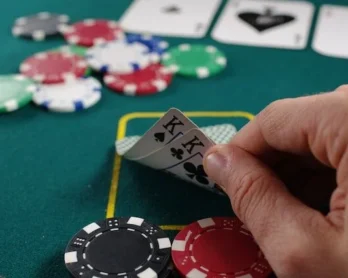Everyone daydreams about becoming rich. It’s one of those universal human characteristics that appears to transcend cultures, age groups and time periods. If you could ask someone 10,000 years ago what they daydream about, and it probably wouldn’t sound all that different than today – give or take a field of wheat and fleet of oxen! The point is that there must be something innately human about wanting to have it all, so it comes as no surprise that people developed the lottery.
The basic principles of a lottery haven’t changed all that much since the Chinese government in the 3rd Century AD sold the first keno slips to fund the building of the Great Wall. Essentially, you had a pool of people putting money in towards a jackpot, with someone potentially emerging the victor and walking away with an embarrassment of new riches.
Roman dinner parties – aside from devolving into raucous parties – also featured something like a lottery, though in these lotteries every ticket holder left with something. It wasn’t until Augustus Caesar needed to fund some construction work in the Roman capital that the sale of lottery tickets was officially made public in Rome. This means that the lottery, more or less as we know it, had officially entered Europe. But it would still be some 1600 years before the lottery would make its first voyage across the Atlantic to North America and make a sizeable cultural impression.
In an effort to establish some of the first English settlers to the state of Virginia, the King James I sold lottery tickets to raise money, which kicked off a national obsession with the game. Even George Washington and Benjamin Franklin got in the fun, each developing his own lottery (Ben had more luck than George, it must be said). Before long, lotteries were all the rage, but they stagnated for about 200 years, unable to innovate, before a powerhouse came in to change the game.
In 1992, America would learn about the Powerball lottery – a new type of lottery, pioneering the “two drum” method, and offering unheard of sums of money in their jackpot. Indeed, to this day, Powerball holds the record for largest jackpot, by a long shot. The game innovated a number of new lottery features, like the Power Play option – in which you can increase your prize by a random multiple – and the use of a different drum for the single “Powerball”. Before long, Powerball became available online, so Canada could get into the fun as well.
The incredible, 2000-year history of the lottery culminated in 2016 with an incredible Powerball lottery of 1.586 billion dollars, which was split three ways between some very lucky ticket-holders. Then, in 2017, a woman from Massachusetts would win the single largest, un-split jackpot at an amazing 758 million dollars. Who knows what the next milestone will be for this globally popular game, but its next big winner could just be you!











